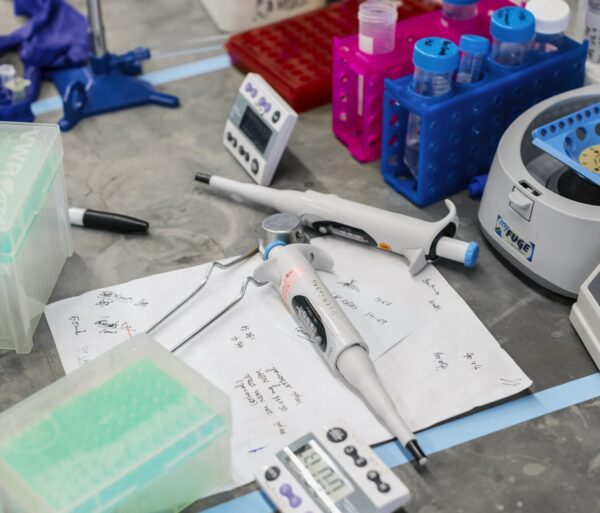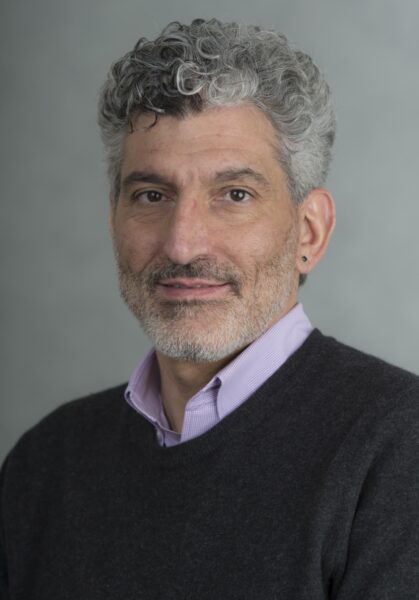Our work has implications for disorders of reward-directed behavior like overeating that can lead to obesity—which is a huge problem in the United States—or consuming rewards that we shouldn’t, like some drugs.

As he tells it, the thrill of learning drew Mitchell Roitman, Ph.D., to research. “I just loved being in the laboratory,” he said. “That’s how I learned best. I got hooked.”
Now Dr. Roitman is hooked on understanding the very reward system that sparked his commitment to research. He’s particularly interested in what drives us to seek harmful rewards, like overeating, drinking too much alcohol, or taking drugs that ultimately become addictive.
Cues and rewards: cause and effect?
Neurologically, Dr. Roitman explained, feelings of reward and reinforcement are triggered by a system that uses dopamine to help the brain send signals. When we sense cues that we associate with feelings of reward, the brain often produces a very brief spike in the level of dopamine.
“We think these dopamine spikes are important in establishing cue-reward associations,” he said. “But it’s still not known whether these are learned associations—bar sign means beer—or whether the associations actually promote behavior—bar sign means beer, bar sign activates dopamine, I go in and get a beer.”
The BRF awarded Dr. Roitman a 2012 seed grant to help him develop a new research tool to study the neurobiology of reward and aversion. The new tool combines highly advanced dopamine measurement, a particular strength of his lab at the University of Illinois at Chicago, with optigenetics.
Optigenetics is a technique that utilizes light and genetics to control the activity of neurons. Dr. Roitman used optigenetics to install light sensitive channels in dopamine neurons. Using brief pulses of light, dopamine neurons can be turned on or off to give scientists an opportunity to observe corresponding behaviors. For example, if dopamine neurons are off when an animal sees cues that mean sugar treat, does addictive behavior (consuming the treat) turn off as well?
What happened; what’s next?
Over the year of BRF funding, Dr. Roitman’s team proved the tool works. Specifically, they were able to cause brief pauses in dopamine signaling in an important region of the brain called the nucleus accumbens.
Next, the team looked for causal relationships in animals between brief changes in dopamine concentration and reward and aversion. Using preliminary data from the BRF study, Dr. Roitman has applied for additional funding from the National Institutes of Health to further his research.
Future promise: decoding addiction and depression.
Another aspect of his research relates to loss of reward. Often, Dr. Roitman said, depressed individuals lose the ability to experience pleasure. This is called anhedonia, and may be linked to the absence of dopamine spikes. Using the new research tool, Dr. Roitman planned to attempt to establish a causal relationship between turning dopamine neurons off and this negative affect.
The opportunity?
Developing insights that will contribute to a deeper understanding of the neurobiology that underlies depression. This outcome, combined with the possibility of discovering a path to overcoming addiction, offers truly promising results.



